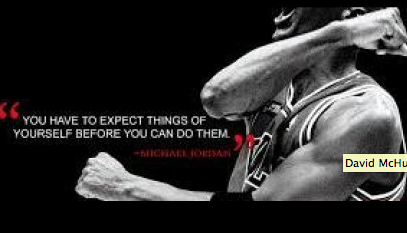This week I chat to Sports Psychologist David McHugh. David is graduate from Liverpool John Moore’s University University with an Msc in Sport Psychology having studied psychology for four years in Galway and Nottingham.
TCD: When asked what sport psychology is how do you reply?
DM: I reply with the saying that it is strength and conditioning for the mind. It gives players and teams the ability to develop the mental attributes that will enable them to improve as players, supporting some on their journey to elite playing levels and supporting others in developing personal attributes that will enable them to develop as a person.
When the focus is on developing players a holistic approach should be taken focusing on physical, technical, tactical, psychological and lifestyle skills. However in Ireland are we teaching our players the skills that will enable them to develop as people and players? I do not believe we are. In most cases players are lucky to get adequate physical, technical and tactical support in their development.
What makes this lack of focus on the psychological skills of players surprising was when a group of researchers asked 8 coaches in different Premier League academies what the key attributes of those making it into the first team were. They all concluded that the psychological attributes of the players determined their success, not their technical, tactical or physical attributes.
TCD: So how can we address this deficiency in the development of our young players?
DM: Here are some practical ways coaches can support the development of player’s psychological skills:
Persevere in the face of failure: Players must be encouraged to view failure as a learning experience and as a part of the process in improving. Failure should be seen as feedback on ways you can improve as a player and team. If the player and team plays to the best of their ability and still loses the player should be made feel like a winner. This takes success beyond the traditional concept of winning and losing, and makes sport about being the best that you can be every day. This is not only important in sport, but an important life skill.
Your biggest competition is yourself: Players should be encouraged to view their competition as being themselves. This is something that is in their control. They can control the level that they play at and consequently they can focus on being better on a daily basis. They should not be encouraged to focus on the opposition or winning as this can lead to lowering of the player’s motivation for self improvement when they lose a game. The focus should always be on self improvement.
Take responsibility for your performance: When the players and team go onto the pitch they must be encouraged to take responsibility for their performance, good or bad. In how many schoolboy matches do coaches and players give excuses such as the weather, the opposition and the referee as the reason for poor performances and results? These are a result of not taking responsibility for performance. If the players and team are not encouraged to take responsibility for their performance they will always find an excuse as to why they did not reach their potential.
These three strategies can develop an environment which supports the development of young players so that they have the motivation to be the best that they can be. Some of Irish football players are getting the required technical, tactical and physical training necessary to improve as football players. However none of our young players are getting the support to develop the psychological skills necessary for what would be termed a holistic approach to development. Sport Psychology can fill this gap to support players and teams in becoming better people and players.
If you would like to find out more on sport psychology in football you can email David d.a.machugh91@gmail.com his website is davidmchughsp.wordpress.com
-End
I always like to hear your opinions. Please comment below or email me info@thecoachdiary.com, if you don’t have anything to add then please forward this on to a friend.
Thanks for reading. I’m also on twitter @Coachdiary










